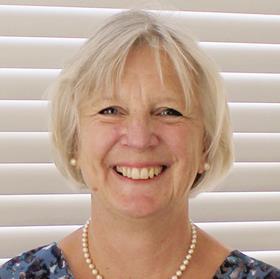The shared ownership tenure, which allows people to part-own and part-rent their homes from a housing association with just a 5% deposit, has become increasingly popular over the past few decades.

Devised in the 1980s and originally intended for public sector key workers, the eligibility criteria have gradually been relaxed and were notably expanded in April this year, providing new opportunities for a wider range of people.
This includes professionals in the private sector who, despite earning good salaries (up to £90,000 per household), are still struggling with affordability, and lack the funds needed for a hefty deposit - reflective of the housing crisis across the capital. Shared ownership is now no longer seen as a ‘second-best’ option but indeed the only route to market for many young professionals.
Housing associations have historically preferred to do shared ownership sales in-house due to a perceived lack of knowledge within the estate agency sector.
But now, with the big providers having to operate more like private developers, and the size and volume of shared ownership schemes increasing, many are turning to agents to assist with the sales and marketing of their products.

To date, the number of agents prepared to take on shared ownership homes could be described as limited at best, with many unwilling to employ the necessary talent or dedicate the resources required to successfully understand this specialist product.
To effectively sell shared ownership homes, agents need to be fully aware of the intricacies of the scheme in terms of financial assessments, the rental element, homeowners’ responsibilities, resales and staircasing - whereby purchasers gradually increase their stake in the property, eventually owning it outright.
Shared ownership buyers also tend to need more guidance and hand-holding than first-time buyers who purchase on the open market.

Failure by the agent to fully explain the shared ownership process at the point of purchase can lead to problems later on. For example, the buyer must be aware that each time they increase their share in the property, they are subject to legal costs, which can quickly stack up.
Meanwhile, from the housing association’s point of view, it is paramount the agent understands the rigorous audit process that they have to go through, particularly as they operate in an increasingly commercial manner. This means that the agent must provide a fully audit-compliant file at completion.
It is highly encouraging to see shared ownership take off, but it is imperative that we increase the understanding of the product across the board - from agent to homeowner.
Anne Currell is group chief executive of Currell






























No comments yet